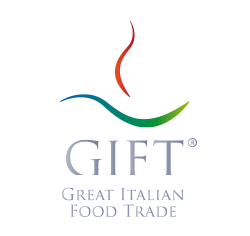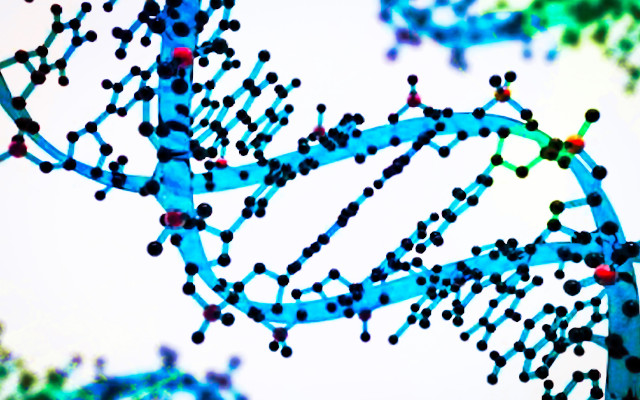The British organization GeneWatch highlights some serious critical issues in the draft EFSA opinion on genetically modified microorganisms now subject to public consultation.
Civil society experts highlight how current knowledge gaps prevent risk assessments from being carried out to protect public health and the environment. (1)
Genetically modified microorganisms, the EFSA draft opinion
The Nutrition and Food Innovation Unit of EFSA has launched a public consultation on the draft scientific opinion, requested by the European Commission, regarding new developments in biotechnology applied to microorganisms such as viruses, bacteria, yeasts, filamentous fungi and microalgae. You can participate until August 4, 2024. (2)
EFSA is called upon to identify the possible risks to human and animal health and the environment associated with the introduction - into food and the environment - of microorganisms genetically modified through 'traditional' and 'innovative' biotechnology. Namely the NGTs, the new GMOs, already described on our site. (3)
Forward in the dark
Genetically modified microorganisms they are widely used in foods (additives and enzymes), in drugs and medical therapies, as well as in the treatment of agricultural crops.
A recent study (Lerner et al., 2024) reviewed the scientific evidence that has emerged so far, highlighting the fears of the scientific community regarding the risks relating to:
– alteration of the intestinal microbiota
– allergies
– antibiotic resistance. (4)
GeneWatch observations
The draft opinion EFSA, observes GeneWatch, often reports the lack of knowledge necessary for an adequate risk assessment. Assuming that any doubts can be resolved at a later stage, through new 'guidelines'. A less than reassuring approach.
GeneWatch, an association with experts in the study of biotechnology, shares the fears of the inexperienced and elaborates observations on the draft opinion, point by point.
1 – EFSA's mandate is inconsistent
No questions asked or approved for the release of GMMs into the EU has so far been submitted, outside the scope of the rules on medicinal and veterinary products (the live cholera vaccine, Vaxchora, contains GMOs). Furthermore, medicines fall outside the scope of the draft opinion under consideration (as well as the competences of EFSA).
The project EFSA's opinion incorrectly interprets the Authority's mandate itself, which is essentially limited to food and feed safety. Where it is necessary:
• consider a wider variety of potential applications of genetically modified microorganisms, beyond agriculture and food/feed (e.g. aquaculture, bioremediation and virus-induced genomic modification in a variety of applications), which may have a direct or indirect impact on food and feed safety and include a wider range of receiving environments, including freshwater and marine environments
• Assess the risk of cross-border (cross-border) movements of living genetically modified organisms (GMOs), including those developed using NGT.
Topics unrelated to the mandate EFSA raises risk management issues, such as traceability, labeling and liability for future damage to the environment and/or human or animal health. The release of GM microorganisms in worst-case scenarios includes the risk of spreading harmful, self-replicating organisms, including potential new pathogens, on a global scale.
2 – Lack of necessary knowledge
In relation to microorganisms genetically modified (GMM) categories 3 and 4 (capable or not of multiplying and transferring genes), EFSA highlights a series of important gaps in the existing guidelines. These include the existence of unparalleled GMMs with a history of safe use in food or feed production.
The gaps impact on crucial aspects in the safety assessment, such as:
– the exposure of the population
– allergenicity
– the effects on the microbiome (intestinal bacteria in humans and animals)
– the consequences of horizontal gene transfer (from GM microorganisms to other organisms)
– the environmental impact.
The opinion also notes that Category 3 GMMs, although not living organisms, can transfer genes with harmful characteristics, such as antimicrobial resistance, to other microorganisms.
GM microorganisms'Category 4 (which are living GMOs) can reproduce and spread in the environment and will co-evolve with existing microorganisms (for example in the human gut, soil and waterways) in poorly understood and unpredictable ways', warns GeneWatch.
The expedient of the new guidelines
The potential risks are known, but the discussion on how to deal with them is rather sparse. The EFSA draft opinion devotes just over a page each to risks to the gut microbiome and potential environmental impact. And in the absence of solutions or precautionary measures, new guidelines are referred to.
'EFSA is wrong in suggesting that significant knowledge gaps associated with the public release of GMMs can be addressed simply by developing new guidelines. The need for a precautionary approach is enshrined in Directive 2001/18/EC and the Cartagena Protocol on Biosafety (implemented by Regulation (EC) No. 1946/2003).
If interpreted correctly, these legal instruments should lead to the conclusion that the MGMs (including NGT-Ms) they should not be deliberately released into the environment, due to the inability to predict and/or manage future adverse effects on human and animal health and the environment', concludes GeneWatch.
Marta Strinati
Footnotes
(1) GeneWatch UK comments on the EFSA GMO Panel's Scientific Opinion on New developments in biotechnology applied to microorganisms. 2.4.24 http://www.genewatch.org/uploads/f03c6d66a9b354535738483c1c3d49e4/genewatch-response-to-efsa-gmms-consultation-fin.pdf
(2) EFSA's Nutrition and Food Innovation Unit. Draft scientific opinion on new developments in biotechnology applied to microorganisms. https://connect.efsa.europa.eu/RM/s/publicconsultation2/a0lTk000000C3VB/pc0848
(3) Dario Dongo. New GMOs, the final betrayal. GIFT (Great Italian Food Trade).
(4) Marta Strinati. Additives, drugs, new GMOs. The risks of genetically modified microorganisms. GIFT (Great Italian Food Trade).

Professional journalist since January 1995, he has worked for newspapers (Il Messaggero, Paese Sera, La Stampa) and periodicals (NumeroUno, Il Salvagente). She is the author of journalistic surveys on food, she has published the book "Reading labels to know what we eat".




